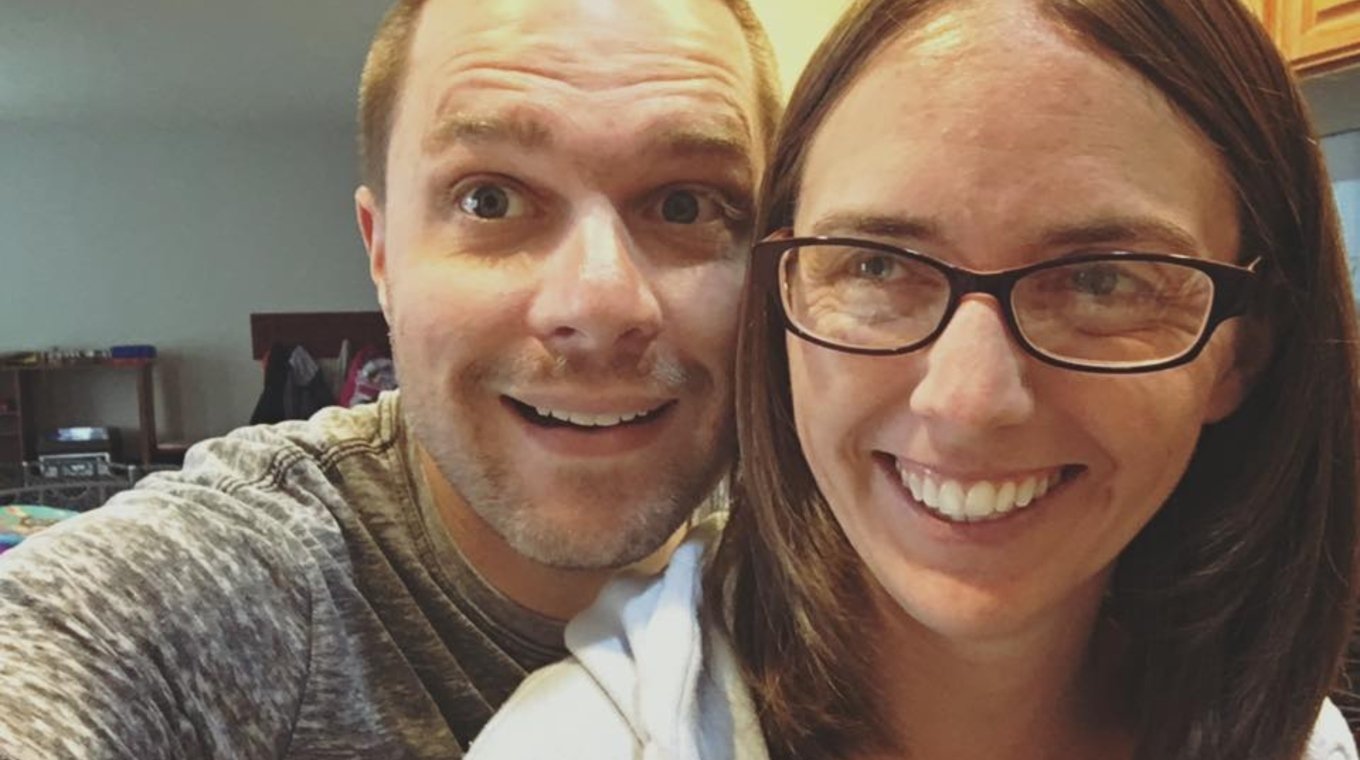
If they handed out nickels for every time someone uttered the phrase “Babies should really come with instruction manuals,” I’m pretty sure we’d all be rich. The need for some magic, one-size-fits-all parenting guide is certainly relatable. After all, those frantic, sleep-deprived months with newborns are no joke. But neither are the years that follow. And if you’re the parent of a child with special needs or learning challenges, a foolproof guidebook to navigating it might sound like a lifesaver right about now. Clint Edwards of the blog No Idea What I’m Doing and author of the forthcoming book Silence Is a Scary Sound understands this feeling all too well.
Edwards recently wrote about the surprising challenges of raising his 10-year-old, who has ADHD, in a Facebook post that's resonating with parents.
Believe it or not, the most unexpected part has nothing to do with his daughter, Norah, at all. In fact, it has to do with his wife — and the fact that the couple just can’t seem to get on the same page about how best to support their daughter.
“We’re two weeks into the school year, and each night has been a battle not only with our daughter, but with each other,” wrote Edwards, who admits that their mutual frustration often escalates into arguing.
Things recently came to a head one night after Norah fell behind on schoolwork, and Edwards and his wife, Mel, began arguing over how to help her.
Caught in the middle of her bickering parents, Norah abruptly shut her math book closed and ran upstairs, crying.
“Suddenly all three of us were in Norah’s room, Norah hiding behind the dresses hanging in her closet, Mel and I trying to talk her down,” Edwards wrote.
And that’s when a little exchange happened that opened his eyes.
“Mel said, ‘We’re all on the same team,’” Edwards recalled. “And Norah said, ‘It sure doesn’t feel like it.’”
When her dad asked what she meant by that, Norah told him point-blank: “No one listens to what I want. I’m the one learning.”
And that's when Edwards says it hit him ...
“Mel and I made eye contact and realized that although we thought we knew what was best for our daughter’s education, we failed to fully involve her, causing Norah to feel like her voice didn’t matter and preventing her from buying into her own education,” Edwards wrote. “Everyone in the room had the same goal, and yet no one felt like they were being listened to.”
Ironically, Edwards said you would think he and his wife would make a “dynamite team” parenting a child with learning challenges. After all, Edwards’ day job is in higher education, where he says most of his job is assisting college student athletes to succeed, many of whom have similar learning disabilities. Meanwhile, Mel works in education too, “so she has the inside track on Norah’s classroom expectations.” And when she’s not at school, she’s reading up on ways to best support a child with ADHD.
Even so, they still found themselves missing the mark -- and more importantly, letting it take a toll on their relationship.
So, Edwards wrote, they decided to take a new approach. One led by Norah herself.
“Later that day, all three of us came up with a plan using everyone’s input,” he continued. “We discussed buy in, and distraction-free environments, and motivation, and study schedules, and by the time it was all said and done, we started to look like a team. But most importantly, Norah felt like she had a say in her education.”
The simple, yet powerful breakthrough has clearly resonated with parents on Facebook, where hundreds have shared similar struggles.
"It’s so hard!” wrote one mother. “My daughter was diagnosed in the spring. I think as parents we tend to blame ourselves and get so wrapped up in the frenzy of ‘what can we do to make this better fast?’ I know I've spent so much time feeling guilty about her struggles that I don't think of how she is affected, only how she is outwardly acting … Thanks for the reminder!”
“This is so great!” another added. “This resonated with me, reminding me of how my husband and I tend to each think our way is best, instead of coming up with something that works for everyone.”
Others noted that this lesson is really one that all parents could stand to learn from — not just those with children who have special needs.
“I love that you woke up and listened,” wrote one mom. “Kids have a voice and it deserves to be heard.”




